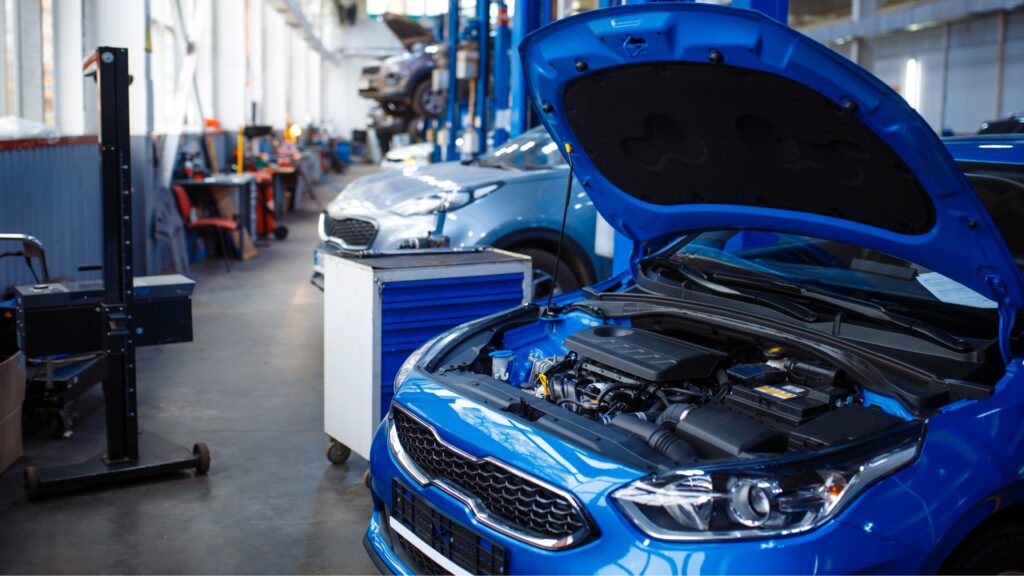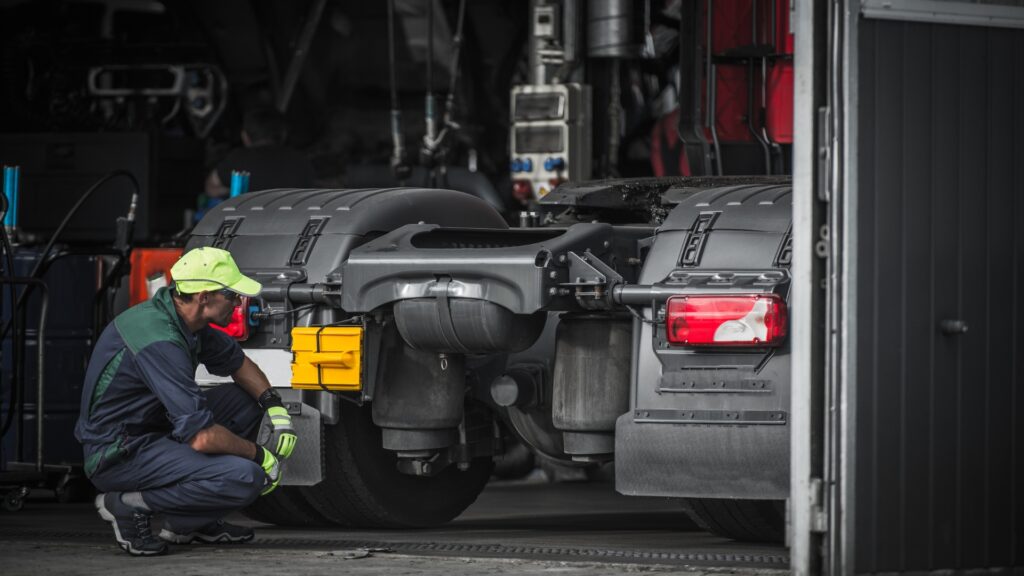If you’re someone who enjoys working with your hands, solving mechanical problems, and thrives in dynamic environments, a career in vehicle servicing might be your perfect fit. With advancements in technology and a growing reliance on vehicles across sectors, skilled professionals in this field are more in demand than ever.
This guide will walk you through five rewarding career paths in vehicle servicing, including the specialised roles of an HGV mechanic, motorcycle mechanic, and bike maintenance technician. Whether you’re just starting out or looking to specialise further, this post offers clarity, structure, and practical advice for navigating a successful career in this essential industry.
Why Choose a Career in Vehicle Servicing?
Vehicle servicing is more than just changing oil or tightening bolts—it’s about keeping the transport infrastructure running smoothly. Every car, truck, motorcycle, or bicycle depends on well-trained professionals to ensure safety, performance, and reliability.
The Benefits of a Career in Vehicle Servicing:
- High demand and job stability
- Hands-on work with tangible results
- Wide range of specialisations
- Opportunities for self-employment or working with major manufacturers
- Strong earning potential with experience and certification
Whether you’re fixing a lorry engine or tuning up a vintage bike, vehicle servicing offers meaningful, engaging, and respected work.

1. Car Mechanic – The Core of Vehicle Servicing
Car mechanics form the backbone of the vehicle servicing industry. From diagnosing engine problems to replacing brake pads and performing MOTs, car mechanics ensure that everyday drivers remain safe on the roads.
Responsibilities
- Performing scheduled servicing and repairs
- Diagnosing issues using electronic and manual tools
- Replacing faulty components
- Carrying out MOT tests and emissions checks
- Communicating with customers about repairs
Skills Required
- Solid mechanical knowledge
- Problem-solving ability
- Attention to detail
- Familiarity with diagnostic tools
- Customer service skills
Typical Qualifications
- Level 2 or 3 Diploma in Light Vehicle Maintenance and Repair
- Apprenticeship in Motor Vehicle Service and Maintenance Technician
- NVQ or IMI accreditations
UK Average Salary (2025 estimate):
£24,000 – £38,000, depending on experience and location.

2. HGV Mechanic – Heavy Duty, High Demand
An HGV mechanic (Heavy Goods Vehicle mechanic) specialises in the repair and maintenance of lorries, buses, and commercial trucks. Given the critical nature of haulage and transport industries, this role is in especially high demand across the UK and globally.
What HGV Mechanics Do
- Maintain and repair diesel engines and transmissions
- Inspect suspension systems, brakes, and axles
- Perform roadworthiness checks and compliance testing
- Operate diagnostic software for heavy vehicles
- Work with fleet operators and logistics companies
Core Competencies
- Advanced mechanical skills
- Knowledge of air brake systems and hydraulics
- Understanding of vehicle legislation and HGV regulations
- Physical stamina and attention to safety
Career Routes
- Level 3 Diploma in Heavy Vehicle Maintenance
- HGV Technician Apprenticeships
- Manufacturer-specific training (e.g., DAF, Scania)
UK Average Salary (2025 estimate):
£30,000 – £48,000, with overtime and bonuses in fleet or depot settings.
Tip:
Many HGV mechanics go on to become workshop supervisors, fleet managers, or start their own vehicle servicing businesses.
3. Motorcycle Mechanic – Precision and Passion
For those with a love for two wheels and an eye for detail, becoming a motorcycle mechanic is a fantastic niche within vehicle servicing. These mechanics specialise in servicing and repairing motorbikes, scooters, and sometimes quad bikes or ATVs.
Day-to-Day Responsibilities
- Performing bike MOTs and safety inspections
- Tuning engines and carburettors
- Replacing chains, tyres, and brake systems
- Customising bikes to client specs
- Advising customers on performance upgrades
Technical Skills
- Understanding of 2-stroke and 4-stroke engines
- Electrical systems for motorcycles
- Handling and balance dynamics
- Tyre fitting and chain tensioning
Training and Entry Routes
- Level 2/3 Diploma in Motorcycle Maintenance and Repair
- Apprenticeships with manufacturers or local garages
- IMI Motorcycle Technician qualifications
UK Average Salary (2025 estimate):
£21,000 – £35,000, with higher potential in specialist or custom shops.
Ideal For:
Motorcycle enthusiasts, hobbyists, or those aiming to work in motorsports.
4. Bike Maintenance Technician – The Urban Mobility Specialist
As urban cycling grows in popularity, so too does the need for skilled bike maintenance professionals. This career focuses on maintaining and repairing bicycles for commuters, delivery riders, or leisure cyclists.
Common Tasks
- Repairing punctures and aligning wheels
- Servicing gears, chains, and brakes
- Assembling new bikes or upgrading parts
- Advising on frame size, accessories, and safety gear
- Supporting bike rental or e-bike sharing services
Where You Might Work
- Bike shops and cycling retailers
- Independent mobile repair services
- Community cycling initiatives
- E-bike fleet maintenance for delivery apps
Pathways to the Job
- Level 2 Cycle Mechanic Qualification (Cytech)
- On-the-job training in a bike workshop
- Volunteering with community cycle centres
UK Average Salary (2025 estimate):
£18,000 – £30,000, with flexibility for part-time or mobile roles.
5. Self-Employed Technician or Mobile Mechanic – Take Control of Your Career
Once trained in any area of vehicle servicing—be it cars, HGVs, motorcycles, or bike maintenance—many professionals go on to become self-employed.
Benefits of Being Your Own Boss
- Set your own schedule and rates
- Mobile repair services in high demand
- Serve niche markets (e.g., classic cars or sports bikes)
- Offer convenience to customers
- Control your own growth and branding
Many self-employed vehicle technicians combine skills across different vehicle types, expanding their customer base and revenue potential.
Skills You’ll Need Across All Vehicle Servicing Careers
While each path has its specialisation, the core skills remain similar:
| Core Skill | Why It Matters |
|---|---|
| Mechanical Knowledge | Understanding systems, parts, and tools |
| Diagnostic Ability | Spotting and fixing problems efficiently |
| Customer Communication | Explaining repairs and building trust |
| Time Management | Meeting deadlines and managing jobs effectively |
| Safety Awareness | Keeping yourself and customers protected |
| IT & Software Literacy | Using diagnostic software and digital tools |
How to Get Started in Vehicle Servicing
1. Choose Your Path
Decide whether you want to focus on light vehicles, HGVs, motorcycles, or bicycles. Research demand and salaries in your local area.
2. Enrol in Training
Look for accredited courses from providers like IMI, City & Guilds, or Cytech (for bikes). Apprenticeships offer excellent hands-on experience.
3. Get Certified
Certifications improve your employability and often lead to higher pay.
4. Gain Work Experience
Start as a trainee or assistant. Many employers value real-world experience over qualifications alone.
5. Stay Updated
As vehicles evolve—especially with the rise of electric vehicles—ongoing learning is key. Stay current with new tools, regulations, and technologies.
Conclusion: A Career That Moves With You
The field of vehicle servicing is a gateway to a stable, practical, and engaging career. Whether you see yourself as an expert HGV mechanic, a skilled motorcycle mechanic, or a community-based bike maintenance technician, there’s a clear path for growth and personal satisfaction.
This industry rewards those who are curious, hands-on, and eager to learn. With flexible options for employment, self-employment, and further specialisation, you can tailor your journey to fit your strengths and goals.
So, are you ready to take the first step into a career that keeps the world moving?
